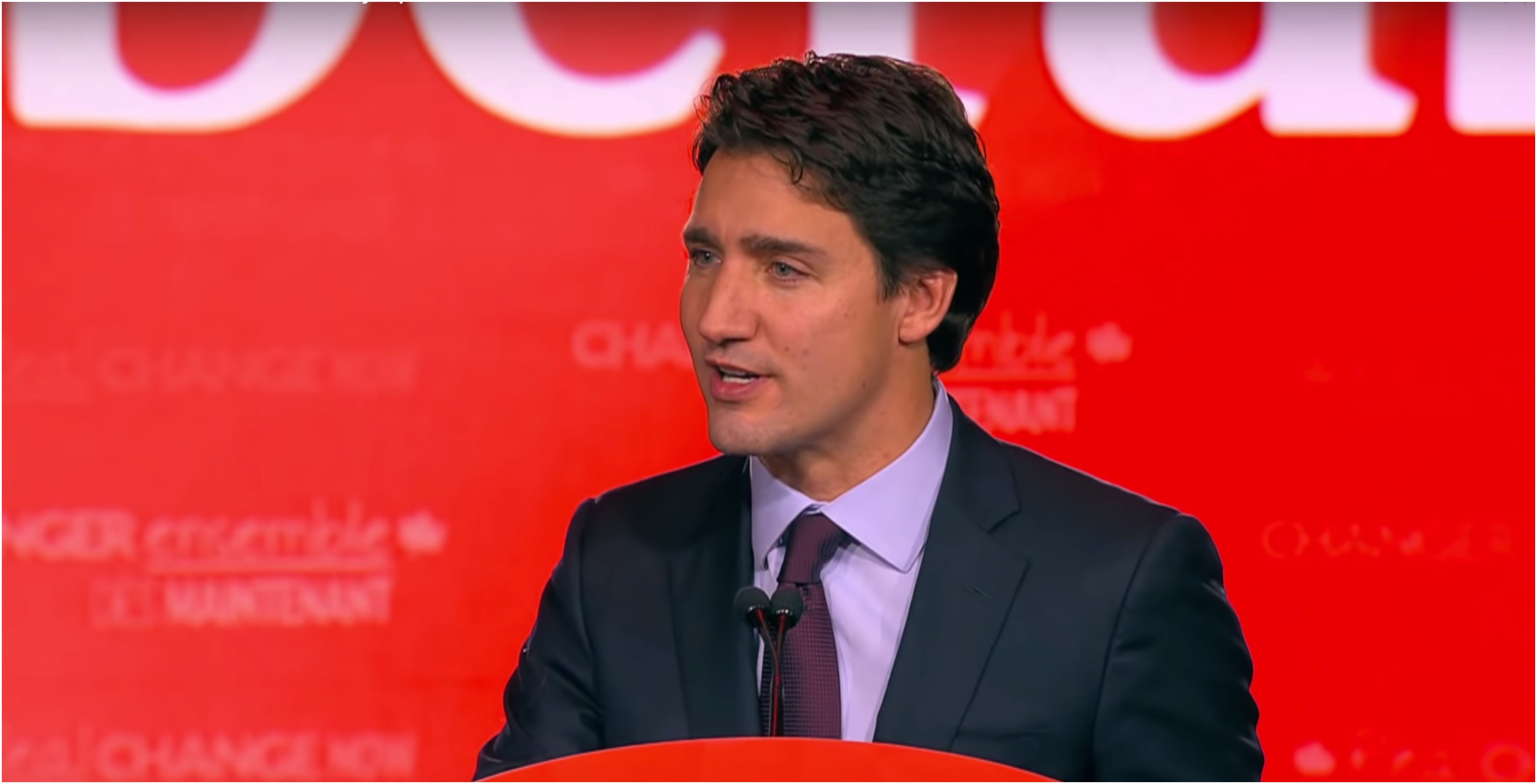
Incumbent Prime Minister Justin Trudeau announced on September 22nd that if he is re-elected he will “reduce the cost of wireless services by 25 percent within four years.”
In Brampton, Ontario, the Liberal leader said that he wants to put “$1,000 back in the pockets of the average Canadian family every year.”
Trudeau indicated that this will be done through various steps, including “working with telecom companies to offer plans at globally comparable prices,” as well as “encouraging competition in the market and allowing the CRTC to step if that competition isn’t leading to lower prices.”
His plan will also include “prioritizing consumer choice and affordability, and not simply the highest bidder when awarding new wireless expansions.”
This announcement is part of Trudeau’s plan to help middle-class families, his party said.
Canadians use cell phones for work, to stay in touch with family, to check in on their kids or grandparents. It’s an important part of your life and it shouldn’t cost as much as it does. So we’ll cut your cell phone bills by 25% & save the average family of 4 up to $1,000 a year. pic.twitter.com/OmApO2e467
— Justin Trudeau (@JustinTrudeau) October 4, 2019
More recently, the CRTC released a report that indicated that prices were declining in communications services. The report said that wireless, internet, television and home phone services combined was 11 percent lower in 2018 than 2016.
It is worth adding that while the Liberals were in government, they introduced several measures to increase competition and to reduce wireless phone plans.
Incumbent Innovation, Science and Economic Development Minister Navdeep Bains issued a policy directive that would require the Canadian Radio-television and Telecommunications Commission (CRTC) to make decisions with affordability and fairness for Canadians in mind.
Shortly after, Rogers, Bell and Telus all introduced rate change plans and offered new prices for unlimited data plans. It is worth adding though that while it may seem that these plans are unlimited after a user goes over their data their speeds will be throttled.
It is also worth adding that unlike the other parties, Trudeau didn’t offer a concrete plan (whether that includes a price cap or not) as to how he intends to drop prices by 25 percent over four years.
NDP Leader Jagmeet Singh recently announced his plan to reduce the cost of cellphone and internet bills as well.
On September 13th, Singh said that his platform will include a price cap on cellphone and internet bills but has yet to reveal an in-depth plan regarding what this would look like.
A price cap would consist of a certain amount of carriers having to abide by and offer services.
Singh did note that the cap would be matched to the Organisation for Economic Co-operation and Development (OECD) average rates. The OECD is an intergovernmental organization with 36 member countries that stimulate economic progress and world trade.
He also added that a government under his leadership would use the CRTC to “not only ensure there is a price cap” but to also include a “mandatory affordable truly unlimited data plan.”
Access to more MVNOs
Singh also wants to bring in smaller players like Mobile Virtual Network Operators (MVNOs).
MVNOs sell mobile phone service by wholesale purchasing the use of another company’s existing infrastructure, then reselling service at generally lower rates. MVNOs are the result of negotiated business arrangements between a Mobile Network Operator and the MVNO. The CRTC doesn’t compel carriers to sell network use to providers that don’t build their own infrastructure, however. Unlike Canada, there are hundreds of mobile MVNOs in operation in the U.S., but they are not mandated. There is more of a business case in the U.S. because of the larger population.
Like Singh, Trudeau’s plan includes encouraging “competition by expanding the entry of” MVNOs.
“MVNOs lease wireless capacity at wholesale prices and resell it to consumers at reduced retail prices under their own business brand,” a Liberal information document reads.
Sugar Mobile at one point positioned itself as a Wi-Fi-first MVNO, but the CRTC deemed it was operating improperly.
According to the document, the Liberals indicate that “major network operators will be required to lease their available capacity to qualified competitors.”
“‘Qualified’ competitors will be determined by more than just the network’s physical infrastructure – but also their commitment to creating jobs, developing skills or investing in research,” it added.
Trudeau’s plan reads that after two years prices aren’t coming down “we’ll consider expanding MVNO qualifying rules,” that will include lowering the entry and investment threshold for MVNOs, lowering the rates at which MVNOs get access to networks, and expanding the CRTC mandate to make affordable pricing for consumers.
In Canada right now MVNOs are not mandated, though the CRTC launched a review of the wireless market back in February to look into the matter. A hearing for that is set to take place on January 2020.
Spectrum will be divided based on consumer choice
To increase competition as well, Trudeau’s document indicated that access to spectrum will be done differently. At the moment, spectrum (waves that offer a network for cellphone and internet services).
At the moment, the spectrum is offered to the highest bidder. Trudeau says that “to promote competition and lower prices,” spectrum will be awarded based on consumer choice, affordability and broad access.
That will include reserving “space for new entrants.”
The Green Party of Canada has also indicated a plan to reduce cellphone and internet bills, but has not formally announced anything.
The Conservative Party of Canada has not announced any wireless plan related strategies as of yet.
Image credit: YouTube (screenshot)
MobileSyrup may earn a commission from purchases made via our links, which helps fund the journalism we provide free on our website. These links do not influence our editorial content. Support us here.


